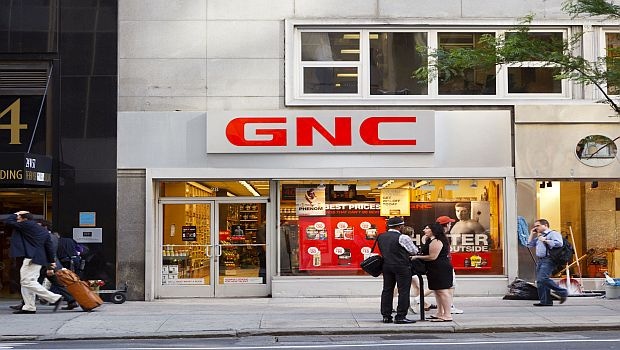Perhaps the initiative receiving the biggest buzz on Wall Street is GNC’s long-term plan to transition 1,000 company-owned stores to franchise locations.
February 17, 2016

Mike Archbold, the chief executive of GNC Holdings Inc., gave a frank assessment of his company during a Feb. 11 earnings call with financial analysts.
He cited a number of positive developments, as well as areas where GNC has failed to meet its expectations. On the bright side, GNC has added an expanded assortment of products to its stores and achieved a 20-percent improvement in “top line sales" during a four-day promotion period in December, Archbold said. He also cited fewer customer service complaints and product innovation in such categories as probiotics and natural and plant-based proteins.
Wall Street has welcomed GNC’s long-term plan to transition 1,000 company-owned stores to franchise locations.
“As management has described it, GNC’s refranchising strategy provides the company with numerous financial benefits, including lower working capital … and higher free cash flow, as well as greater visibility into earnings and perhaps less earnings variability," Meredith Adler of Barclays Capital explained in a Feb. 12 equity research note.
Pittsburgh-based based GNC converted 33 company-owned stores to franchise locations in 2015 and anticipates converting about 200 locations this year. Company executives said GNC is in early talks with a select number of seasoned franchisees who don’t operate today in the supplement industry.
Franchisees today own an average of two stores.
“We expect that number to grow significantly," Archbold said, “as we are open to and having conversations with different franchisees including those that are interested in hundreds of stores."
Over the long term, GNC aims to have a balanced mix of company-owned stores and franchise locations. In the conference call with analysts, GNC Chief Financial Officer Tricia Tolivar expressed the view that such a balanced combination will drive the highest return to shareholders.
In the fourth quarter, GNC’s consolidated revenues increased 1.8 percent to $618.2 million, while same-store sales rose 0.8 percent in U.S. company-owned stores. It was the third quarter that GNC achieved an improvement in same-store sales.
For 2016, GNC anticipates domestic company-owned same-store sales will be in the range of flat to a 1.5 percent increase over the prior year. GNC’s initiatives “could take time to gain traction," analysts with Deutsche Bank Securities Inc. noted in a Feb. 11 research note.
GNC: By The Numbers
$618.2: Fourth-quarter (Q4) revenues
$42.9 million: Q4 net income
0.8 percent: Q4 increase in domestic company-owned store sales
$2.64 billion: annual revenues
$219.3 million: annual net income
$2.93: adjusted annual diluted earnings per share
Archbold acknowledged GNC has failed to meet expectations in a number of areas.
“When we aren’t focused on giving the customers what they need, we aren’t successful," Archbold said during the conference call. “Case in point: vitamins."
The VHMS (vitamin herbal mineral supplement) category suffered a 1 percent decline in same-store sales last year, he said.
“Clearly, this is not in line with our expectations," Archbold said. “But we have a clear strategy to address these results, which involves recognizing that we need to be more focused on delivering vitamin solutions and evaluating our quality-priced value proposition in vitamins."
GNC, which has around 9,100 store locations worldwide, is working to improve other areas related to its brand marketing, pricing strategy and membership Gold Card.
“Over the course of time, this has become a discount card," said Archbold, who noted GNC plans to introduce an improved program in 2017.
“Our intention is to return the Gold Card to its roots as a loyalty card that provides value," he said, “and further strengthen our relationship with our customers, ultimately creating meaningful long-term connections."
Commenting on GNC’s pricing strategy, Archbold said, “While we’ve taken steps to simplify and improve our value perception with our customers, our pricing remains complicated and is perceived higher than some competitors."
GNC may be the face of an industry that has been under attack, thanks to investigations launched by state attorneys general and growing criticisms in the mass media, questioning the effectiveness and quality of dietary supplements and the adequacy of regulations governing them.
“Questions regarding the quality, purity, potency, safety or efficacy of dietary supplements can have a material effect on our reputation, the demand for our products, our ability to generate revenues, and the value of our stock," Archbold said. “Over the past 12 months, we and others in the industry, particularly specialty retailers, have experienced volatility of sales and stock performance as a result of such publicity, including unfounded and meritless allegations."
He acknowledged such adverse publicity “can undermine consumer confidence."
“It is critical that we highlight our rigorous quality standards and change the perception of the quality players in the industry," Archbold said.
Archbold said GNC is leading a coalition of more than 40 companies, including retailers, raw material suppliers, manufacturers and multilevel marketers, among others. Four working groups are focused on media outreach, certification standards, establishment of botanical raw material GMPs (good manufacturing practices) and recommendations on the advisability of an industry product database.
“Our goals are to improve the narrative about the industry," Archbold said, “increase consumer confidence, and reduce the amount of distraction that occurs to our legislators as a result of such unfounded and meritless allegations."
You May Also Like




.png?width=800&auto=webp&quality=80&disable=upscale)